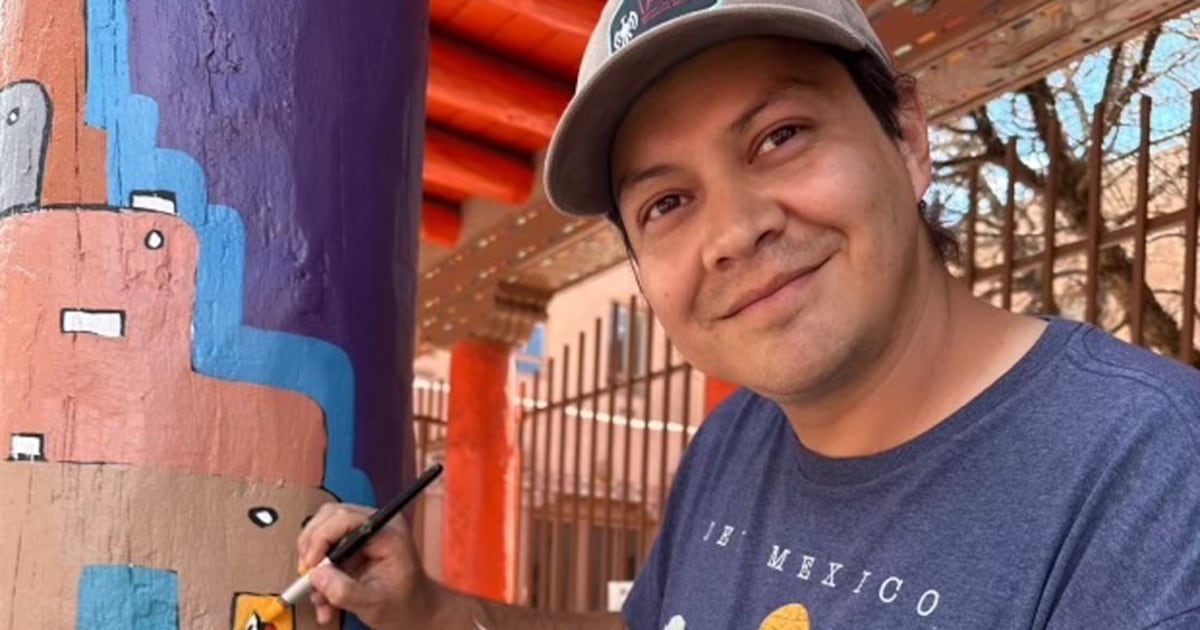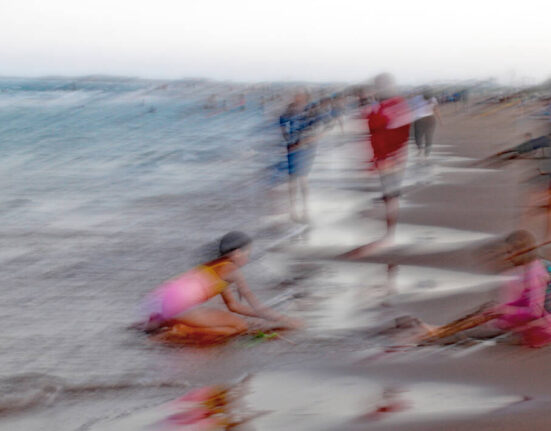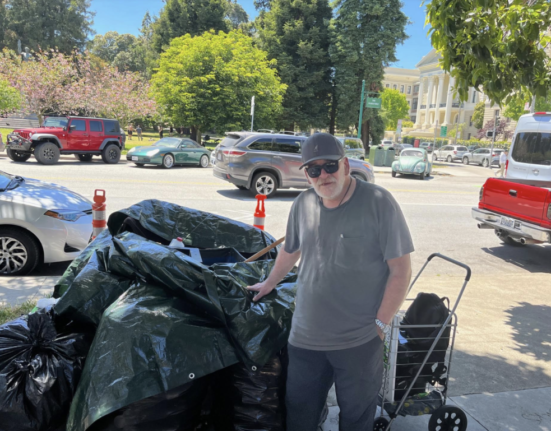Taos Pueblo artist and recent Institute of American Indian Arts BFA grad Brian Taaffe says he’s always been at least a little obsessed with the architecture of his hometown. Not only is the Pueblo itself a UNESCO World Heritage site, its iconic lines are well-known to pretty much any Northern New Mexican. As such, representing Taos has become Taaffe’s bread and butter as a painter and printmaker. His obsession served him well in updating, for the first time in a decade, the columns adorning the portal at the IAIA Museum of Contemporary Native Arts. Taaffe, along with Eliza Naranjo Morse, Heidi K Brandow, Robin Tsinajinnie, Topaz Jones and Haley Greenfeather English, will unveil his newest work during Indian Market this weekend. He’ll also kick off a pop-up shop inside the museum throughout the weekend, and speak during an artist talk at MoCNA (3 pm Saturday, Aug. 17. Free. 108 Cathedral Place, (505) 983-8900). We spoke with Taaffe to learn more. This interview has been edited for clarity and concision. (Alex De Vore)
How did the process for updating the columns work? Did you pitch an idea, or did MoCNA come looking for you?
Originally, there was an artist who was going to do the columns, but something happened and she got sick or something, and [museum officials] were kind of like, ‘Hey, let’s find some other artists.’ And because I work there in the gift shop, they asked me; and because I’d just had a show at the museum in the Lloyd Kiva New Gallery, they were like, ‘Do you want to put something in and see what happens?’ So it was a selection process, and I had to write a short little sample piece about what I’d do. All the artists did that. The museum’s idea was about how land and identity intersect, and how we as artists could portray that. My idea was basically…I talked about how the pueblos and the people are basically one, because we all come from the land and the pueblo is the identity of the people—and vice-versa.
Did you and the other artists collaborate, or was it every artist for themself?
We all have different styles and we all had our own columns, and the museum decided what order to put everybody in to tell the best story. So there are six of us, and my theme was ‘pueblo architecture,’ but, like, day-to-night. And it wraps around the column. And they wanted me because the pueblo is an iconic thing in New Mexico, especially Northern New Mexico. With the other artists…one person’s column is about the people; one is about the animals; one is more about the design of things around here; one is more like plant life. It all kind of works together very well even though we have different styles. There’s a story. You start at one, and they all tell a different part of a story. They’re all part of the land and the culture here.
When you do a special project like this, do you loop in the tenets of your personal practice, or is it a chance to cut loose with something new?
With this one, I kind of went away from what I normally do. I stuck with the theme of pueblo architecture, but I usually do buildings that have dimension, so you can see the shadows, see it popping. But because they were on round pillars, I had to think of it in a completely different way, so I was working with a different style for doing the buildings. I call it a ‘cobblestone’ painting, which is basically like Tetris—I was building it in blocks. I used this style to wrap all the way around the pillar in one cohesive piece; like a bunch of pieces built into one cohesive thing and a continuous piece all around the column. That’s stepping away from my normal style, and I kind of just did it.
I mean, I planned a little bit, but mostly I just went for it and made everything connect. The beauty of painting is you can always fix it if you mess it up, and I paint so much that I’m not worried about it. I knew it would come out the way it needed to come out. I mean, I’m the kind of person who is going to jump at opportunities like this. You just say yes to everything and figure it out along the way.







